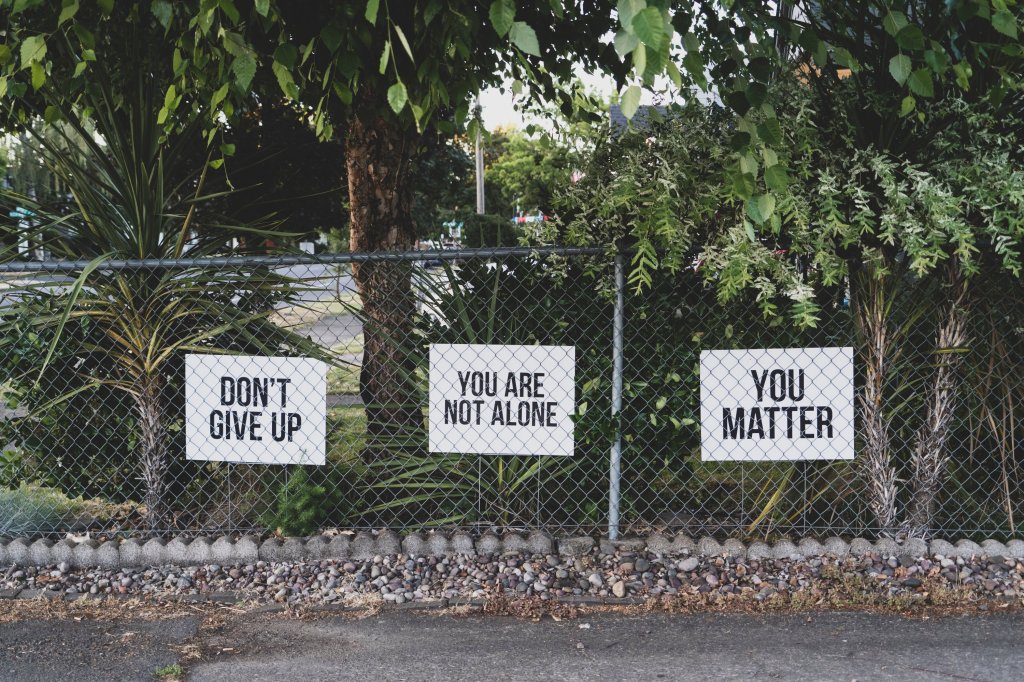
Hello and welcome to The Millennial News. Kindly introduce yourself to our readers; your profession, area of expertise.
My name is Bray Odhiambo Owiti. I am a psychologist by profession. I have worked at Inuka Wellness company, which is an online anonymous platform which offers therapy for individuals anonymously. I also worked at Oasis Multi-Specialty hospital where I was the psychologist and head of the department for mental health. I am now at the Ministry of Interior and Coordination of the National Government. I have also built my practice known as Bloom Counseling services which has been in operation for about one year. I primarily deal with people who have been diagnosed with depression, personality disorders, and I’ve also done a bit of marital counseling. I also specialize in helping people who have substance dependence.
What has your experience been like dealing with cases of depression? (Add details about gender, age, ethnicity, or any demographic)
When it comes to depression, females have a 2 to 3 times higher rate of being diagnosed with depression as compared to their male counterparts. The annual prevalence is also about 7%. When it comes to this 7%, most of the people who get diagnosed fall between 18-29 years. In this specific age group, prevalence is about 3 times higher as compared to individuals who are between 60 and older than 60.
What are the diagnostic criteria for depression?
The short term objective is to usually describe the mood states, the levels of energy, the control levels over their thoughts, their sleep patterns, their eating patterns, etc. This is because depression usually affects the various aspects of our lives so describing these gives us a clear picture of the exact situation the individual has.
Some symptoms of depression include being withdrawn, hopelessness, loss of interest in the things one once enjoyed doing.
We look at a specific set of symptoms. In the first instance, we usually look at whether 5 or more of our specific symptoms have been present during the same 2-week period, and if they represent any significant change from the way an individual normally functions.
One of the symptoms is a depressed mood for the better part of the day and it happens nearly everyday. The person can feel sad, empty, hopeless, and sometimes it even takes other individuals to take note of this.
The second thing is anhedonia which is the significant loss of interest in pleasure or activities that one used to like.
The other thing is insomnia. Whether the person is able to sleep well, whether they sleep too much or too little, whether or not they are able to sleep at all, and just how frequently this occurs.
The other thing is dramatic weight loss even when one is not on a weight loss diet.
We also look at whether someone feels constantly fatigued or if they feel like they have been drained of energy and how frequently these feelings occur.
We also look at the reduced ability to think or concentrate and if someone becomes a bit more indecisive nearly everyday rather than the way they usually are.
To be diagnosed with major depression, at least 5 of these have to occur within the same 2-week period.
Are there any certain risk factors that can make one more susceptible/prone to depression?
- One of the risk factors is family history. If there is a history of someone being diagnosed with depression in the individual’s family, it predisposes them.
- The other risk factor is the environment in which we grow up in. Negative and adverse childhood experiences, especially where there are multiple experiences and they keep recurring, they form a set of risk factors for either major or mild depression.
- Stressful life events can also push someone to the brink and can actually cause the depression itself.
On that note, there was a debate going on on nature vs nurture; whether one is depressed because they are not strong enough to handle situations or whether one is depressed because the environment is way more toxic than we can handle. What are your thoughts on this?
The nature/nurture narrative is very complicated. We as people are very similar but we also have many differences. When it comes to nature vs nurture, there are no specific laws to determine if one is strong or not. Our environment plays a part in this because for instance, when you are going through a difficult time and you try to speak up about it but are told ‘these are white people problems, these things don’t happen to us’, the environment is already toxic. Because you’re already going through something that is causing you anguish. The environment that we live in and the society in general, serves to give us an identity, bring us close together, and to protect us. We protect someone in different ways: looking out for them, being there for them, supporting them. When someone comes to us with a challenge and we don’t support them, we invalidate the feelings that they have, we are not playing our role then which in this case is protecting them. And when we don’t protect them, our society and the environment essentially becomes toxic
What treatment will I get if I am diagnosed with depression?
The first therapeutic intervention is to encourage the individual to open up and share what they are thinking, their feelings, etc. We build a rapport with them and connect with them while assessing their primary and interpersonal and other symptoms of the mood disorder depression.
The second thing we do is assess the presence, severity, and what kind of impact their past and recent mood episodes have on their social and various functioning levels eg work life, and personal life.
We also complete a psychological testing to assess the impact of these mood problems and also try to arrange for administration of various instruments such as psychological tests that we use. We arrange how these tests are going to be used so that we ensure they are offered in an objective way. And to ensure the results are accurate so as to offer the best and most suitable therapeutic intervention.
The long term goal is to alleviate the depressive symptoms and allow people to get back to their level of functioning. We then try to develop healthy thinking patterns and beliefs about themselves and the world around them. Since grief is a key factor in depression, we also try to help them to appropriately grieve loss in order to normalize their mood and become more adaptive when it comes to their functioning.
As my therapist, are you entitled to tell my parents when I’m depressed?
For people under 18 who are still minors, it is always important for parents to be aware since the child is receiving treatment. Talk to them and inform them that it is actually important for their parents to know what is happening, inasmuch as they may be adamant because it is a legal requirement. For those over 18 as well, there are certain limits to which confidentiality doesn’t apply. Some of these include where a minor or has experienced sexual abuse or assault or physical assault, the second instance is where an individual is a danger to themselves, where its apparent they might harm themselves. It is important to find out if they have a solid plan of harming themselves and the means to do so. The third instance is when you’re required by law and there is a court order compelling you to share information concerning a client.
How do I overcome depression?
Seek help no matter how scary it may seem. This doesn’t necessarily have to be therapy; you can speak to your friends, family, or a trusted person. And seeking help isn’t always necessarily about getting a solution, but about having someone to share your experience with and being able to get things out of your chest and your mind.
The second way is by accepting that situation the way it is. When you accept that a situation is in a certain way, it gives you the opportunity to reflect on it and find out a way to work through it.
The other thing is being patient with yourself. When working through challenging situations, you won’t always get results immediately so you need to give yourself the time and allowance for you to be able to explore the possible options that are available for you to get yourself out of the situation.
Share some hotlines or resources/websites that one can visit to get help?
https://blog.opencounseling.com/hotlines-ke/
https://www.enableme.ke/en/article/suicide-emergency-numbers-and-free-counselling-centers-in-kenya-3770
https://matharihospital.go.ke/
Take a look at Chiromo Hospital Group (@ChiromoHospGrp): https://twitter.com/ChiromoHospGrp?t=FPlQLzOC0LbzmhVlo6pFMA&s=08
Take a look at Basic Needs Basic Rights Kenya (@BasicNeedsKenya): https://twitter.com/BasicNeedsKenya?t=rTFRO9XbKVEMrs9ZoAYAeg&s=08
Take a look at QualityRightsKE (@qualityrightske): https://twitter.com/qualityrightske?t=1xAcY4UjXwdfD2HQFAU3gg&s=08
Take a look at HUGs Organization (@hugs_co_ke): https://twitter.com/hugs_co_ke?t=xxDVPuEe47FwpMf_E1pqew&s=08
Take a look at Speak Mind Love Foundation. (@SML_kenya): https://twitter.com/SML_kenya?t=i8nOJDKVdZJ0GNGOBR5Smg&s=08
Take a look at citiesRISE (@citiesRISE): https://twitter.com/citiesRISE?t=TLLAapAH4PgzlrZ3bBpBVA&s=08
Take a look at Mathari National Teaching and Referral Hospital (@HospitalMathari): https://twitter.com/HospitalMathari?t=sCcJpCnwCiIHzpU_UaVVag&s=08
Finally, this being a Mental health awareness month, is there anything you would like to share with our readers?
It’s okay to not be okay. If you’re experiencing challenges, you don’t have to go through it alone. There are resources that are designed to help you and you owe it to yourself to be kind to yourself, to just be there for yourself even while other people are there for you. When it comes to mental health, it’s not something to be ashamed of or scared about. You can live a very successful and very fruitful life. Always reach out because there are resources to assist you. In summary:

- It’s okay to not be okay.
- You don’t have to suffer in silence.
- You are not alone, there is always help.
#mymentalhealthmatters
#mentalhealthawarenessmonth
#themillenialnews

